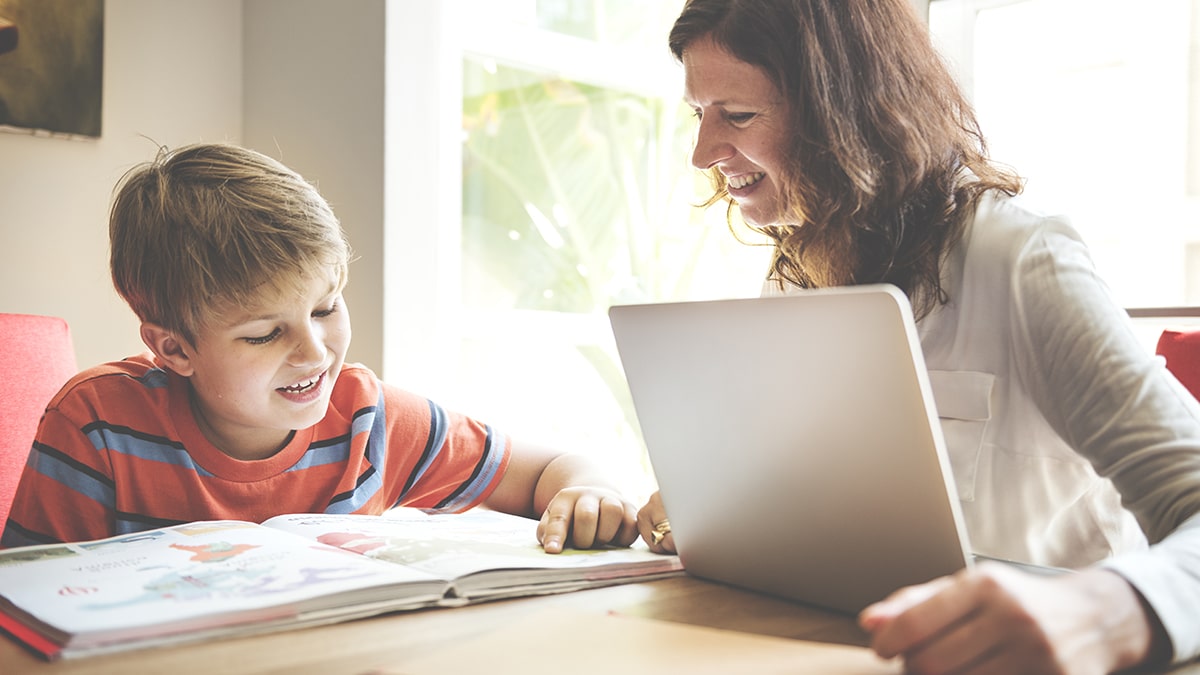by Sarah Ohana, OT Reg. (Ont.) & Paula Riczker, OT Reg. (Ont.), The Possibilities Clinic
COVID-19 as a rapidly evolving situation; we hear that every day. What has evolved for you, as parents, are more responsibilities, more concerns, more stressors, and more unknowns in a time of great uncertainty. We imagine you are wearing multiple hats right now. At least three come to mind: parent, teacher, tutor (not to mention cook, cleaner, washer of dishes and clothes, and the list goes on). It’s normal to feel overwhelmed right now. These are unprecedented times for everyone. And for children and adults with ADD or ADHD, many challenges have intensified. Routines have changed, and on-line learning and remote work are new expectations.

As Occupational Therapists, we’re hearing lots of concerns from families about remote learning. How can you support your child or teen with this new reality? Here are some common questions we’ve been answering, and strategies we hope you find helpful.
How can I get remote learning started at home?
- Collaborate with your child to determine the most helpful organizational system for assignments and deadlines (e.g., Google Docs, a smartphone, an agenda, a whiteboard?).
- Leave one browser open on a computer—or as few as possible—to minimize visual distractions and support attention.
- Model self-talk and discuss specific steps needed to approach a task while your child is listening. This strategy makes the obvious even more obvious. Encourage your child to self-talk while working through tasks, too.
- Try a block schedule to manage daily tasks. For example, block out 2- to 3-hour chunks of time for tasks and activities, including blocks of time for homework, fun, relaxation, and exercise.
- A timer may be helpful for some children to signal recess and lunch—just like school—and to signal transitions between activities.
How can I set up a space at home where effective learning can happen?
- Collaborate with your child to find a quiet space in your home.
- Minimize visual and auditory distractions by clearing up desk space, closing doors, and offering noise cancelling headphones.
- If the space most available in your home is open, create a cubby with all your child’s belongings. Use a basket or shoebox to hold essential items if desk drawers are not an option.
- Encourage your child to use the workspace—and not a bed—for working. Beds are for sleep and relaxation!
How can I help my child maintain a focused and calm body and mind?
- Try flexible seating options, like standing at a desk if a higher surface is available, lying on the floor, or sitting on an exercise ball while seated at a desk.
- Build in body and brain breaks throughout the day, especially after focusing on tasks. For young children, practise animal walks (e.g., walking like a bear or crawling like a crab), jumping jacks, and wall push-ups. For older children, encourage sit-ups, push-ups, and jumping jacks!
- Chewing gum, sucking on a hard candy, or drinking water may help your child focus during homework time.
- Encourage check-ins throughout the day. For example, ask, “How are you feeling?” and “How does your body feel?” Being aware of mood and how the body feels at any moment helps your child learn how to regulate emotions and behaviour more effectively—especially when work gets tough!
COVID-19 poses significant challenges for everyone. Validate your child’s experience by acknowledging feelings and frustrations. Yes, it is sad not spending time with friends. Yes, it is frustrating not going to school. Yes, it is difficult not moving freely in spaces and places. Let your child know that you feel sad and frustrated, too, but talk about positive things, as well! And of course, remember to be kind to yourself. You are doing your very best to keep your family safe and healthy—and to keep them learning, too!
If you are looking for support from OT please contact us at info@possibilitiesclinic.com.










